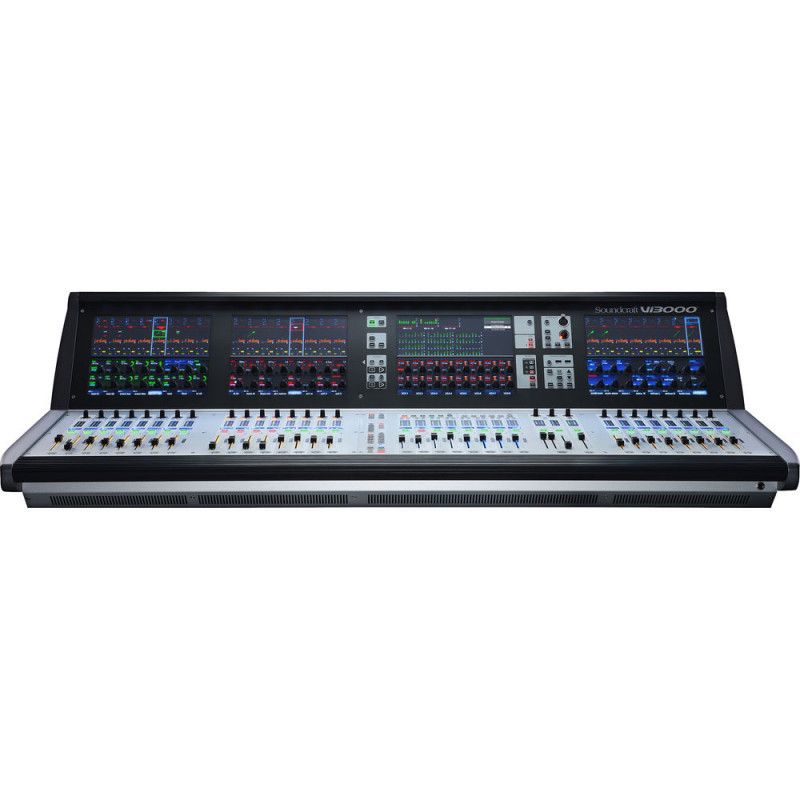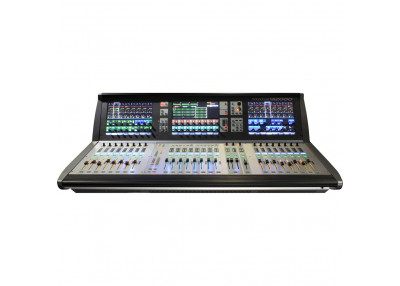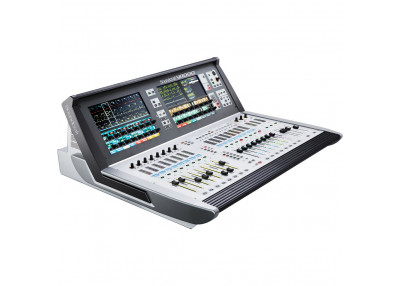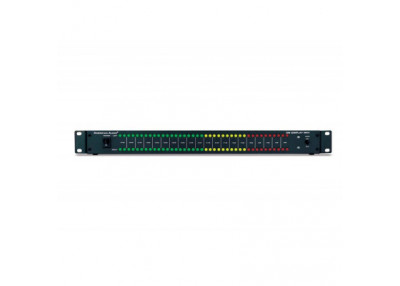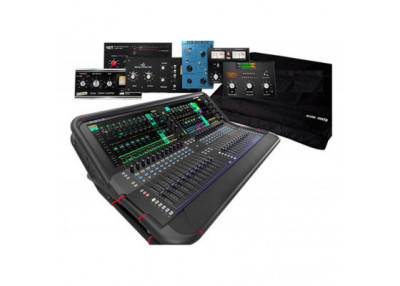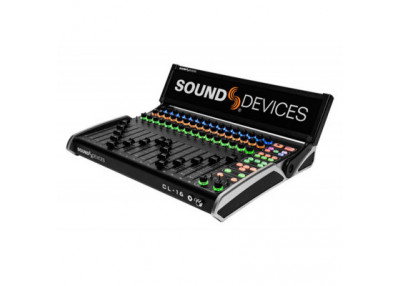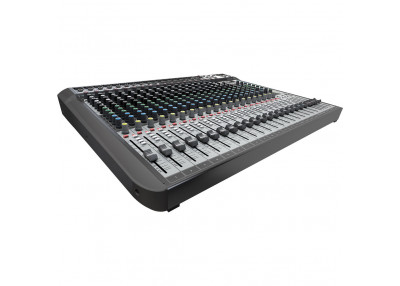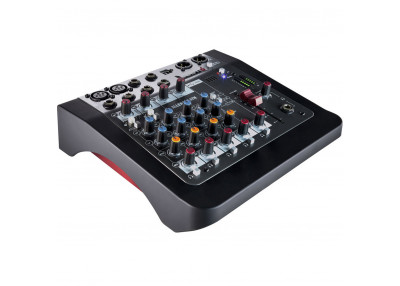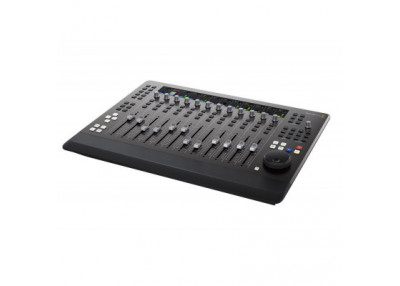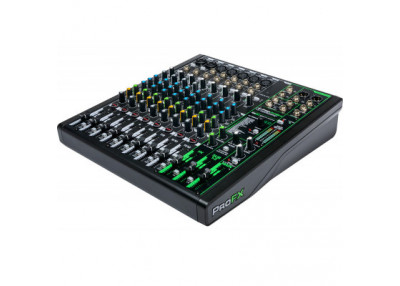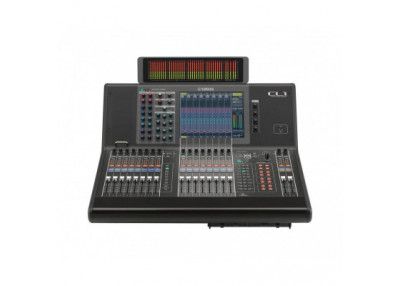Soundcraft VI3000 - Console numérique - 48 in/16 out
1 year warranty
- For Live Touring, Install & Corporate AV
- 48 Onboard Mic Inputs, 36 Faders
- 48 kHz Sampling Frequency
- Dante Interface, MADI-Ready
- 24 Mono/Stereo Busses
 Subscribe To When In Stock
Subscribe To When In Stock
Soundcraft VI3000 - Console numérique - 48 in/16 out
- Soundcraft Vi3000 Digital Live Sound Console with Dante
Soundcraft Vi3000 Digital Live Sound Console with Dante
The Soundcraft Vi3000 is a standalone digital live sound console with 36 faders, 48 high-quality mic preamplifiers, 24 mono/stereo busses, an onboard Dante interface, a maximum of 96 inputs to mix, a 48 kHz sampling frequency, and a pristine audio path specifically designed to meet the demands of professional live touring, install, and corporate AV applications.
The console's intuitive workflow provides sound engineers with direct access to all functions, maximum information and visibility at all times, a unique integration of touch screens and encoders, eliminating complex and fatiguing mental mapping, and a compact operating surface with a perfectly optimized control density. FaderGlow illuminated faders display different colors according to function. A sweeping, black screen panel with four Vistonics II touch screen interfaces and sleek 3D graphics makes it possible for two engineers to use the console at the same time. Users also have the ability to store/recall snapshots and cues, and can control the console remotely from an iPad via the Soundcraft ViSi app.
The Vi3000 offers extensive rear-panel connectivity. In addition to a full complement of analog and digital inputs/outputs, the console provides MIDI, USB, Ethernet, DVI out, Dante/MADI record feed outputs, redundant power supply, and other connections. The Vi3000 has two expansion bays that can be fitted with MADI Stagebox cards (available separately), to connect multiple Soundcraft Stagebox input expander modules (also available separately).
Pristine SpiderCore DSP, UAD Plug-Ins, Lexicon FX, BSS EQ
Sound quality is handled by Soundcraft SpiderCore, a 40-bit floating point DSP engine that combines FPGA and DSP technology to maximize I/O routing and DSP mixing capability in a footprint small enough for inclusion within a control surface.
Internal FX come courtesy of 4 independent stereo Lexicon multi-effects units, each providing a choice of 14 reverbs, 7 delays, and 8 pitch shifting effects, patchable to input channels, aux outputs, and channel inserts.
BSS DPR901ii Dynamic EQ—this acclaimed industry-standard DEQ is built-in as standard with 8 instances available for inserting on any input or output channel. The DEQ can be used at the same time as the existing channel EQ and Dynamics sections.
The Vi3000 can also accommodate the Soundcraft Realtime Rack (available separately), a hardware/software unit designed in collaboration with plug-in manufacturer Universal Audio, which provides access to 74 industry-standard UAD plug-ins.
Four Vistonics II Touchscreen Interfaces: Touch, See, Mix
The Vistonics interface is central to the Vi3000 design philosophy, providing direct access to all functions with maximum information and visibility at all times. 16 switches and rotary encoders are built into each of the four Vistonics screens, so where you look is where you control. Functions are color-coded and change according to the selected mode and one touch of the screen is all it take.
FaderGlow Illuminated Faders
FaderGlow illuminates the fader track in colors that integrate with those of Vistonics II to show at a glance what function a fader is controlling at any given time. FaderGlow applies cyan, blue, and red illumination respectively to the fader track, enabling the operator to see the different output types immediately, even before reading the text labels that also exist for each fader.
Dante, MADI, and More
The Vi3000 incorporates a Dante interface as standard, for seamless digital audio networking with Dante-enabled devices. You can also access DAWs for live multitrack recording and virtual sound checking via MADI.
MIDI, USB, and Ethernet ports are also included, along with a DVI output and 4 channels of AES I/O.
Two ports on the rear panel allow you to add networking and expansion cards such as ADAT, AES/EBU, RockNet, 3G SDI cards, and more.
Uninterrupted performance is assured by dual redundant PSUs.
An FoH Console Great for Mixing Monitors
All busses to stereo: All busses can be turned to stereo without tying up two busses, providing a massive 24 stereo mix capability, perfect for mixing large monitor applications.
Four aux send points: With a total of 4 aux send points, monitor mix engineers have the flexibility to tailor mixes more closely to performers' requirements. Sends can be pre-EQ, pre-compressor, pre-fade, or post-fade on a per-channel/per-bus basis.
Aux VCA mode: VCA master faders can control the aux sends of their member channels on a per-mix basis, with a FaderGlow illuminating in white to indicate the VCA's operation on the current mix. Monitor engineers can retain control of important global elements such as ambient mics while also having a monitor mix selected and adjusting groups of sources within the current mix using the Aux-VCAs. Blue illumination of FaderGlow indicates that the VCA is controlling the global channel level to all mixes.
Auto-increase of ambient mic levels in monitor mixes between songs: Performers using in-ear monitors want to hear the audience between songs. The Vi3000 has the facility to externally control the Gate or Ducking processing from a bus in the console, so all you have to do is insert a ducker on an ambient mic with an external source of the LR bus or a spare bus, and the audience level increases automatically when the performers stop playing.
Other Features
Virtual Vi offline setup: Set up your shows offline and load them into the Vi3000 via USB
VM2 radio mic status monitoring: Monitor the status of SHURE ULX-D and QLX-D, and HiQnet-compatible AKG radio mics directly from the console surface with real-time visual displays of battery life, RF status, mic muting, and internal clipping.
Copy/Paste channel bus and FX settings: Dedicated Copy and Paste buttons on the surface allow the settings of any channel, bus, or FX section to be copied and pasted, dramatically cutting down the set up time.
Copy/Paste processing elements: Operators can drill down to copy and paste even single processing elements, and the last paste operation can always be quickly reversed with an UNDO function.
Settings library: Along with a useful library of EQ and Dynamics settings, operators can store their own settings in the console or to a USB memory stick, making initial set up and transition between shows even easier.
Sophisticated Cue List management: Allows changes to be applied to multiple cues and recall scope to be set per snapshot.
Advanced events integration: Cues can trigger or be triggered by MIDI or GPIO events, including MIDI timecode. Harman's HiQnet Venue recall function is tightly integrated within the Cue List.
Automated microphone mixing: STUDER vMIX processing is built-in, with ability to seamlessly process up to two separate groups of 16 inputs, with clear and intuitive metering showing gain reduction.
Snapshot crossfades: Snapshot recalls can use crossfades to transition smoothly from one setting to the next.
ViSi Remote iPad app: Control major functions and optimize your mix from anywhere in the venue. Adjust monitor levels from the stage. Includes control of EQ Dynamics and metering overview.
Inputs/outputs
up to 48 mic/line inputs
2 AES/EBU inputs (4 channels)
1 optical MADI input/output (64 channels)
1 DANTE input/output (64 channels)
16 line outputs
2 AES/EBU outputs (4 channels)
1 Word-Clock input/output
2 expansion slots for D21M card
HiQnet, MIDI, USB, DVI
DSP
96 inputs to mix
24 mono or stereo buses
24 pairs of assignable inserts
Direct outputs per channel
DSP resolution: 40 bit floating point
Control surface
24 input faders on 5 layers
8 assignable output faders
2 dedicated LR faders + 1 C fader
5 user definable layers
Specifications
Frequency response: 0/-1dB, 20Hz-20kHz (analog), 0/-0.2dB, 20Hz-20kHz (AES/EBU)
Noise brought back to the entrance:
Residual noise: -91dBu
Common mode rejection: 80dB @ 1kHz (mic input)
Sampling frequency: 48kHz
Conversion resolution: 24 bit
DSP resolution: 40 bit floating point
Latency: < 2ms @48kHz
Dimensions without flight: 351 x 1446 x 784 mm (HxWxD)
Total consumption: 300 W
Operating temperature: 0° to 45° C





